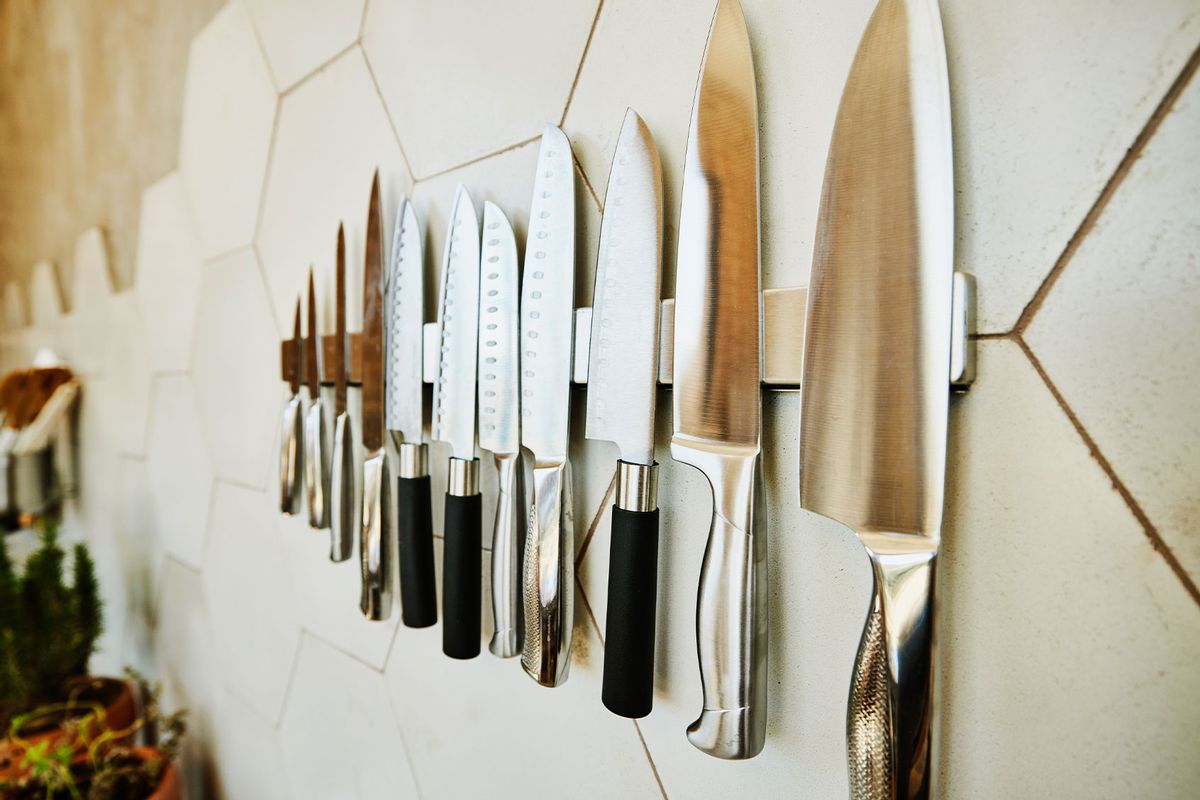It is genuinely impossible to become a "good cook" without some legitimately top-tier knives. You could have the most inordinately expensive, high quality ingredients, products and cookware — but if your knives aren't stellar, you will be undoubtedly disappointed.
In addition, the old adage is so incredible true: A dull knife is much, much, much more dangerous than a sharp one.
Actually, I'd say that this is the one area in which you really must spend some dough: A good knife might cost you, but it's immensely worth it, trust me.
My favorite tests for sharpening knives is the paper trick: Simply sliding a knife through a singular pice of printer paper and seeing if it slices cleanly — or merely cutting into a tomato. Many knives will do nothing but smoosh the tomato, while a properly sharp knife will slice through it with ease. Also, please take care of them! Keep them sharp! I often leave my best or favorite knives out and don't put them in blocks or drawers or elsewhere — you don't want the blades getting dulled or nicked by haphazardly sloshing around in the drawer with random whisks, spoons and the like.
As I mentioned in my primer on cutting onions and alliums, it's imperative to carefully bend your fingers as you progressively cut through whatever it is you might be cutting: "Continue, firmly and decisively, holding the onion and curling or bending your fingers (the point of this is so that if you do happen to nick yourself, you'll make a slight cut on your knuckle as opposed to lobbing off your nail or something equally heinous)."
While doing so, make sure to have a firm hold on your knife itself, guiding it through the foodstuff with confidence and with force, ideally taking on a bit of a gliding, meditative or patterned repetition as you continue your work.
I've said before: Food prep can be genuinely meditative. It's one of the reasons I so love "mise en place."
We need your help to stay independent
Also, please be careful! Watch some YouTube videos, sign up for a knife class, work on your knife cuts — it should go without saying, but you always want to your darnedest to remain as careful and vigilant as possible while prepping your food. No matter how stupendous your Bolognese or homemade Cobb salad is, it won't taste that great if your finger is bleeding under the table, right?
Furthermore, it's also very important that you have a large, heavy cutting board — none of those flimsy plastic ones that slide all over the darn counter. I'm a huge proponent of a thick wooden cutting board with lots and lots of real estate so you can chop to your heart's content and there's enough room for everybody.
Like with pots and pans, skip those knife "sets" or "kits" — they usually come with superfluous knives you definitely don't need. I think you can aim for a good four or five knives and have the bulk of your everyday kitchen tasks covered, but I also listed a few other options that might be good to have on hand for special events, particular uses, holidays and celebrations, certain gatherings and the like.
Other good options to possibly have on hand: carving knives (for those large roasts, Thanksgiving turkeys, hams and foods along those lines), a whetstone or sharpener for keeping your knives in proper shape and of course, some good butter and steak knives.
Now, here are the five knives you need in your kitchen:
Want more great food writing and recipes? Subscribe to Salon Food's newsletter, The Bite.



Shares